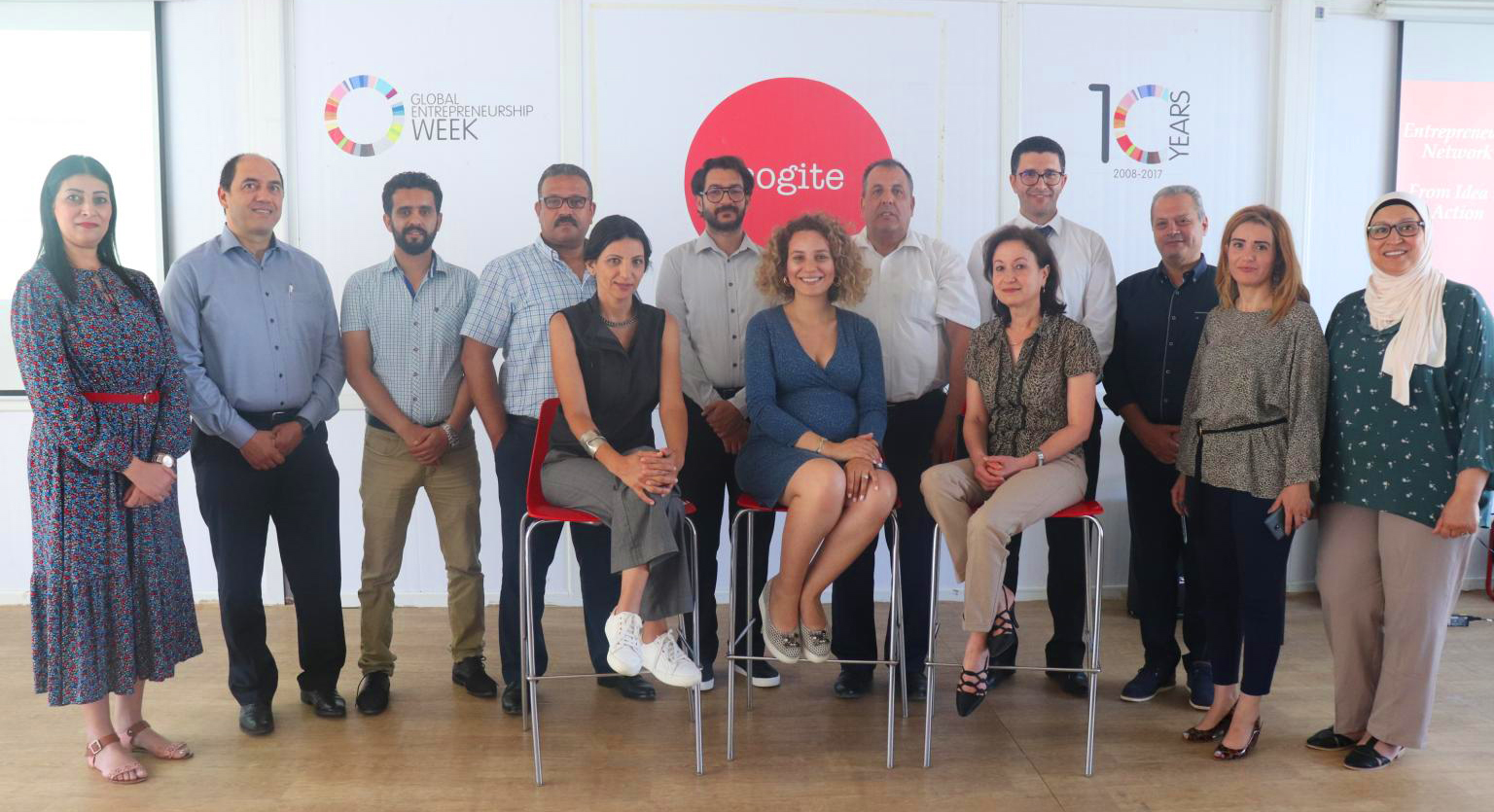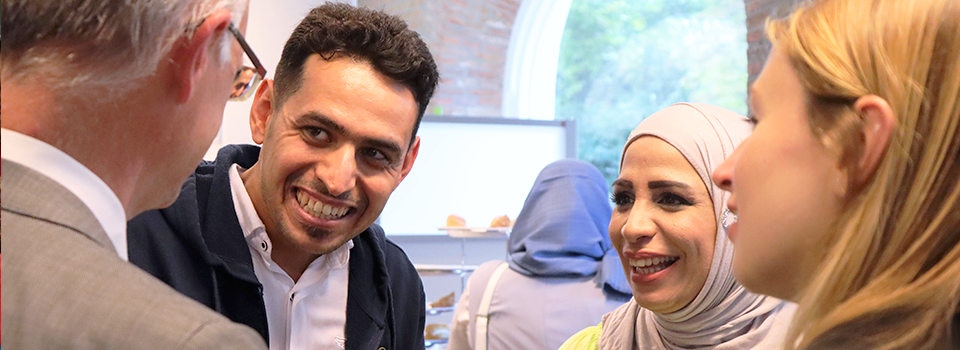Over the last year, civil servants, entrepreneurs and experts from Tunisia, Morocco and Jordan, came together with the goal of strengthening their countries entrepreneurial ecosystem. By engaging in study visits and sessions with international experts, the participants learned best practices and experiences from different parts of the world. Naim Dhaouadi, director of the Tunisian General Authority for Public Private Partnerships, took part in the programme and shares his experience.
Fostering an environment that encourages entrepreneurship has become a core focus of economic development. This supportive environment is known as an ecosystem. With this in mind, the Dutch Ministry of Foreign Affairs funded 23 participants to follow the Shiraka training programme ‘Ecosystem for Entrepreneurs’. The group joined an extensive programme, which included a study visit to the Netherlands and intensive coaching to design back-home action plans.
Naim Dhaouadi found the programme to be very useful for strengthening the Tunisian entrepreneurial ecosystem and shares his experience participating in the programme and developing his back-home action plan.
How do you think entrepreneurs contribute to the development of a country?
 “I think that the development of a country is initially fuelled by economic growth, followed of course by its fair and intelligent redistribution. Entrepreneurs, as economic agents in liberal economies, are at the heart of the creation of value. The more businesses are created, the more investment, jobs and added value.”
“I think that the development of a country is initially fuelled by economic growth, followed of course by its fair and intelligent redistribution. Entrepreneurs, as economic agents in liberal economies, are at the heart of the creation of value. The more businesses are created, the more investment, jobs and added value.”
What are the main challenges of the entrepreneurial ecosystem in Tunisia?
“During the first phase of the training programme, we conducted an ecosystem mapping. Among the challenges, we encountered financial issues, mainly in terms of access to financing programmes and limits on foreign currency transactions. We found the attraction of talent to be a challenge, especially in the face of the ‘brain drain’ phenomenon in Tunisia. We also found blocking bureaucracy to be an issue. I would additionally stress that public policies are not effective to encourage entrepreneurship and to address the real needs of entrepreneurs.”
How does your action plan contribute to a more favourable ecosystem in Tunisia?
“A new concession law recently came into place in Tunisia. This law entails a new public procurement policy that makes it possible for the public and private sector to work more closely together by allowing entrepreneurs to respond to local government tenders. Our action plan “Partnerships for Entrepreneurship” aims to create more awareness around this law and to offer training in different municipalities to facilitate its implementation.
We aim to guide entrepreneurs to find opportunities for creating value that have not been exploited. We will also offer public-private partnerships (PPP) training and disseminate success stories of projects of this sort. So far different partners have shown interest in our plan, among whom the Dutch embassy and the World Bank, so we are very motivated.”
How did the programme support you in developing your idea?
“Without the Shiraka programme, I would have never come up with the idea for our project. Working under pressure and with the encouragement of the training team resulted in this exciting endeavour. The programme allowed me to test my project with key stakeholders including entrepreneurs, experts and funding organisations, who provided valuable feedback that helped us in giving the project the right approach. The coaching team has also followed-up continuously, which has kept our motivation high.”
How do you dream the Tunisian entrepreneurial ecosystem will look like in the near future?
“I dream of an ecosystem where there is more freedom for entrepreneurs. For instance, by modifying laws that inhibit private initiatives or enshrine the cash economy. I dream that the presence of the state in the ecosystem is rationalised as a regulator and as an investor. I also hope that there will be better coordination between stakeholders and that the administration is digitised for better-automated procedures, better quality services and integrity. Finally, I hope that the formal economic sector is predominant over the informal.”
_____________________________________________________________
Are you interested in participating in a Shiraka Training Programme at The Hague Academy? Please take a look at our website for more information and the link to apply. The Shiraka Ecosystem Programme is funded by the Dutch Ministry of Foreign Affairs and implemented by The Netherlands Enterprise Agency (RVO).
Other related articles:
https://cms.thehagueacademy.com/blog/2020/05/new-horizons-for-entrepreneurs/


